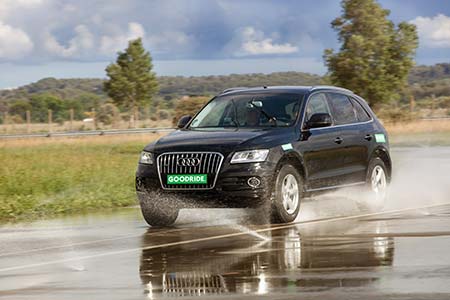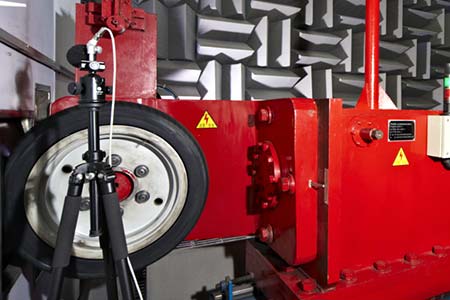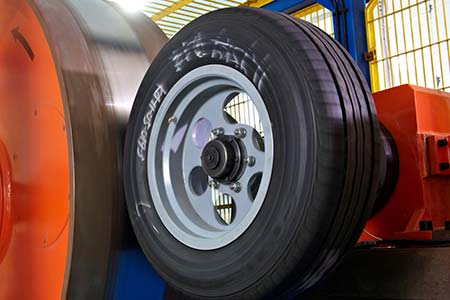I. TÜV SÜD Tire Testing
TÜV SÜD is one of the tire testing leaders. It is the largest independent institute for tire and wheel technologies in Europe. As a certified test lab for tire properties, it provides the full scope of tire tests according to standards, regulations and customers-specified requirements.
II. TÜV Tire Test Mark
What is TÜV Tire Test Mark?
The certification mark is awarded within the framework of voluntary testing and certification. The test procedure was developed by TÜV SÜD Product Service. To be awarded the TÜV SÜD certification mark, the tire to be tested must comply with certain threshold values in the tests. The threshold values are based on either a reference condition or fixed reference values. The tire must also fulfill all minimum requirements set forth in Regulations ECE R30 and ECE R117.
How does a tire qualify for the TÜV Tire Test Mark?
- Manufacturing quality:
Annual inspection of manufacturing facilities and evaluation of general production conditions
- Product quality:
Tire performance tests in road and rig tests
(individual and comparative tests) – annual product (COP-tests) or manufacturing inspections are required
III. Mandatory Tests for Tires
|
Mandatory Tests for All Type of Tires
|
| Handling Properties & Safety |
Environmental Properties |
Operating Safety |
 |
 |
 |
- Braking on dry road (ABS)
- Braking on wet road (ABS)
ECE R117
- Handling or lateral grip on wet road
- Aquaplaning in longitudinal direction
|
- Tyre noise
ECE R117
- Rolling resistance
EC 1222/2009
|
- High-speed durability
Step 1:
Basis acc. To ECE R30
Step 2:
Extended program with 2° of camber angle
|
| Mandatory Tests for Specific Use |
| Additional Mandatory Tests for Normal Tyres |
Additional Mandatory Tests for Snow Tyres |
 |
 |
- Handling on dry road
Lap time (3 laps)
Subjective evaluation
i. Steering
ii. Cornering / lateral dynamics
iii. Ride & driveability
iv. Driving safety and performance at the limits
|
- Braking on snow
- Handling on snow – assessment of lap time and subjective evaluation
or
Lateral grip on snow – lap time
- Traction on snow
|

 Ultra High Performance
Passenger
Winter
STR
All Season
Trailer
Ultra High Performance
Passenger
Winter
STR
All Season
Trailer
 SUV & LTR
Commercial LTR
Winter
SUV & LTR
Commercial LTR
Winter
 Truck & Bus Radial
Medium & Heavy Truck Bias
Light Truck Bias
Light Truck Nylon Radial
Truck & Bus Radial
Medium & Heavy Truck Bias
Light Truck Bias
Light Truck Nylon Radial







